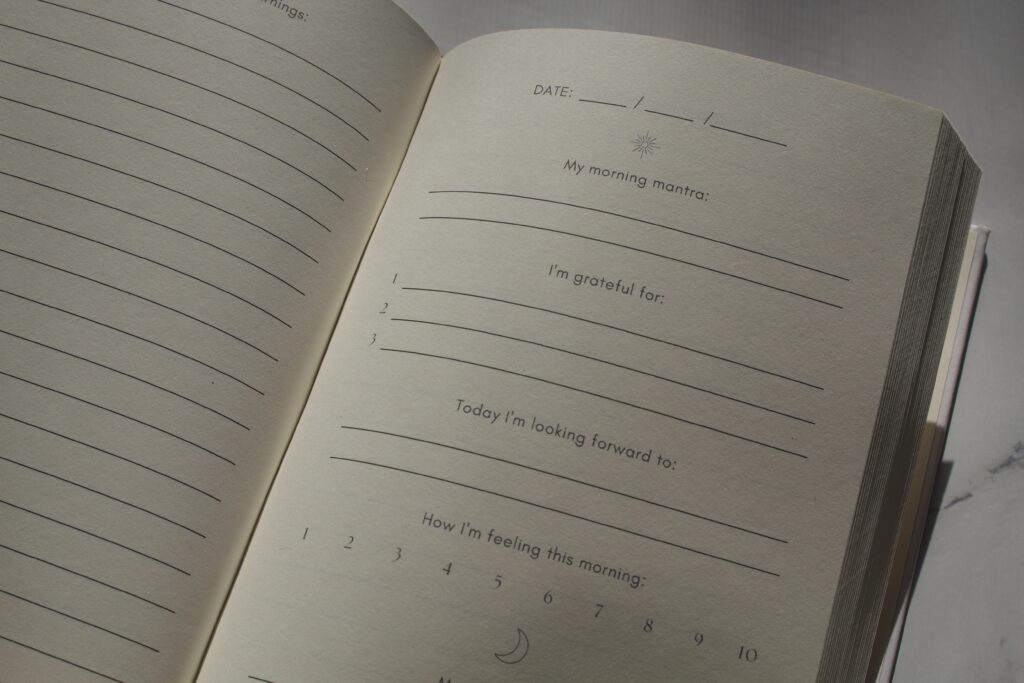Your gain: Understand how to cope with flashbacks of our loved ones. Or, cope with certain situations that continue to haunt us that might be related to their death, their memory… whatever this looks like for you.
Coping with flashbacks after the death of a loved one can be incredibly challenging and painful. Grief is a natural response to loss, and it’s critical to give yourself time and space to process your feelings. Here are some strategies that may help you cope with flashbacks and navigate the grieving process:
Accept Your Feelings
First and foremost, allow yourself to feel whatever emotions come up, including sadness, anger, guilt, or even relief. Yes, you’re allowed to feel relief, too! Grief is a complex and individual experience, and there’s no right or wrong way to feel.
When someone dies, especially if they were in a lot of pain or their quality of life wasn’t what we would hope toward the end. It’s natural to feel a sense of relief that this is no longer plaguing them. We don’t want our loved ones to suffer, right? We need to begin releasing that guilt and shame. That said, we don’t have to be happy they’re gone. We just need to remember that we’re human, and various emotions will ebb and flow.
Seek Support or Counseling for Flashbacks
Don’t hesitate to reach out to friends, family, or a support group for comfort and understanding. Talking about your feelings with someone who listens without judgment can be healing. Now, I know many of us don’t have people in our lives whom we can go to for things like this. Perhaps they’re just not the best at being supportive in the way you need. Perhaps they’re struggling or grieving, too! Or maybe they really just can’t understand because they haven’t been through your level of trauma.
Give others grace if this is the case. We’re all here on our own journeys. We can’t compare, and we can’t live in resentment for the hand of cards we’ve been dealt. All we can do is do our best to understand our circumstances, process the trauma, and figure out how we can make the most of it with the time we have here.
That being said, if this pain and trauma is getting to be especially difficult for you, consider speaking with a grief counselor, coach (that’s me!), or therapist who specializes in bereavement. They can provide valuable guidance and coping strategies tailored to your specific needs.
Mindfulness and Grounding Techniques for Flashbacks
When experiencing a flashback, grounding exercises can help bring you back to the present moment. This is by far one of the most important coping tools when a flashback hits and you feel you can’t get a handle on it. The key is to focus on your breath, the sensation of your feet on the ground, or objects around you to anchor yourself in reality.
I have two blog posts to help you further here. First, “7 Steps for Practicing Breathing and Being Present” is the perfect resource for an in-the-moment breathing exercise where a flashback comes on very quickly and unexpectedly. There’s also a more planned breathing exercise that is an amazing way to start your day and combat any stifling flashbacks that catch you off guard.
Second, “Why You Should Practice Meditation” digs into why meditation is so beneficial for those enduring hardship, specifically. And, gives you best practices!
Create a Memorial and Celebrate Their Life
Honoring the memory of your loved one can be so therapeutic. Whether or not flashbacks happen is something I think so many of us look to do to keep their memory alive and thriving. And, to simply remind ourselves that they’re still around. Check out this blog post here or below on some of my favorite creative ways to honor them.
Engage in Self-care
Take care of yourself physically and emotionally. I know probably like, “yeah, Tara, this is an obvious one… thanks.” But take this one seriously! It can be so difficult to prioritize self-care after a loss with countless responsibilities we have going on. A household, partner, kids, pets, a job… the list goes on.
If you’re concerned about how you can/are showing up for your family or those around you, all the more reason to prioritize this! You know when you’re on a plane and they tell you to put your own oxygen mask on before helping others? Yep, that applies here, too. I feel like women, especially, can struggle with this – particularly when kids are in the picture. We tend to take on so much and we’re the last on the list of things to take care of.
But this is so important because when we’re mentally, physically and emotionally strong for ourselves, we can better show up for others. So, get enough rest and don’t be afraid to express when you need it. Savor your body and embrace it by eating nourishing foods, exercising regularly (even a 20-30 minute walk each day!), and engaging in activities that bring you joy. Think about this for a moment: what sparks joy for you? Write down at least three things.
I have 13 more ways to calm and relax your mind to help you engage in this self-care right here in this blog post:
Journaling
I can’t say enough about journaling—how much I love it and how much I believe in it to help you in your journey in this crazy thing we call life. So much so, in fact, I created my own! If you haven’t heard yet, I created the Losses Become Gains Daily Journal to help both grievers and non-grievers alike tap into gratitude, presence, and a daily practice of checking in with yourself to ask how you’re really feeling and see what’s coming up for you. This can be a safe and consistent outlet for expressing yourself and processing your grief.
Limit and Cope With Your Triggers
I have an entire blog post on this very topic that I’d love for you to check out! There’s really so much to grief triggers that makes this a bigger conversation. For now, remember to try to identify and discover ways to cope with triggers that may lead to flashbacks. At least until you feel more emotionally equipped to handle them. Check out this post on how you can do this!
Routine and Structure
Establishing a daily routine can provide a sense of stability during a time when flashbacks and emotions may feel overwhelming. First and foremost, especially in the grief space, a routine can bring you back to the present moment a little bit. And when you fill your routine with things that are really beneficial to you and are things that make you happy, you’re more likely to want to get up and do them and do them well instead of wanting to go back to bed. Or just sitting there and saying, “I don’t want to do this, I can’t do this”… right?
The second reason I love a routine for grievers is it can give you a little structure or control in a time that can feel very out of control, as bereavement can often feel. When we’re in the process of losing something or someone, or already have, that loss can strip away a lot of our sense of control. We feel life in general is out of our control, and we might wonder how we’re ever going to get this control back. Now when I talk about control I want to make this clear, too – I don’t mean control in a bad way here. Control can sometimes have a negative connotation.
I’m not trying to imply that we all need this crazy tight amount of control on our lives and are trying to control every second of it.
Why a Routine for Grief, Specifically?
But humans generally like to have a sense of control in their lives. Having control over our environment and circumstances can provide a sense of security and predictability, which can reduce anxiety and stress.
Remember, it has been shown through studies that it can take a minimum of 21 days to form a habit. Let’s say you start this routine and it’s a little rocky at first, or you feel like it’s really just not working or not sticking. Keep tweaking this routine if you feel it’s necessary. If something in your gut doesn’t feel right or it’s not bringing some semblance of relaxation and decompression to your life, consider making some changes.
On the other hand, if you feel like it’s more so that you’re in your head with it or you’re not giving it enough of a fair chance when the steps are reasonable enough and are things you enjoy, be honest with yourself and make sure you’re giving yourself enough time to really get accustomed to it.
It can take some time to really feel like this routine, these things you’re doing consistently, are positively affecting your life. Gotta give it time to sink in!
Be Patient with Yourself
Grieving takes time, and healing is not a linear process. Be patient and gentle with yourself as you navigate through this difficult time, and give yourself a WHOLE lot of permission.
Remember, there is no fixed timeline for grieving, and it’s okay to take as much time as you need. These flashbacks and moments of remembering and longing are entirely normal, and can take a long time to subside. Sometimes, they never fully do! If you find that your grief is significantly impacting your daily life or you’re struggling to cope, or you feel you may have some degree of PTSD, consider seeking professional help to assist you in your healing journey.
Other Resources
Remember, I have multiple resources to help you through your grief!
The Grief Becomes Gains Online Course
Are you struggling with your grief? Feeling stuck or lost after a loss or hardship? Unsure how you’ll be able to move forward in life with your grief? Seeking to learn how to grow with your grief to live a vibrant, fulfilling life after loss? The Grief Becomes Gains Online Course is here for you.
Click here to learn more and enroll in my truly one-of-a-kind grief healing course. This course is over 20 hours of guidance, coaching, coping tools, and more that can be done at your pace, on your terms. Come back to it over and over as you need it, I’ll be your forever virtual Grief Coach through this program!
The Losses Become Gains Daily Journal


My brand new Losses Become Gains Daily Journal is now available on Amazon!
As someone who knows loss well (like, really well) and knows how much of a game-changer journaling is to a healing journey and processing grief—this journal was a no-brainer.
But for me so many others out there, journaling can be intimidating. Where to even start, right? With the blank page staring back at you, I wanted to take the guesswork out of it. I knew that if I wanted a journaling habit to actually stick, it would need one that is quick, effective, digs deep, and asks important questions to get me going.
Click here to shop, and be sure to scroll down to see all three colors!
The Podcast
Losses Become Gains Podcast is here to support you with a variety of griefy topics! Click here to access the most recent episodes and listen on your preferred platform.
View comments
+ Leave a comment